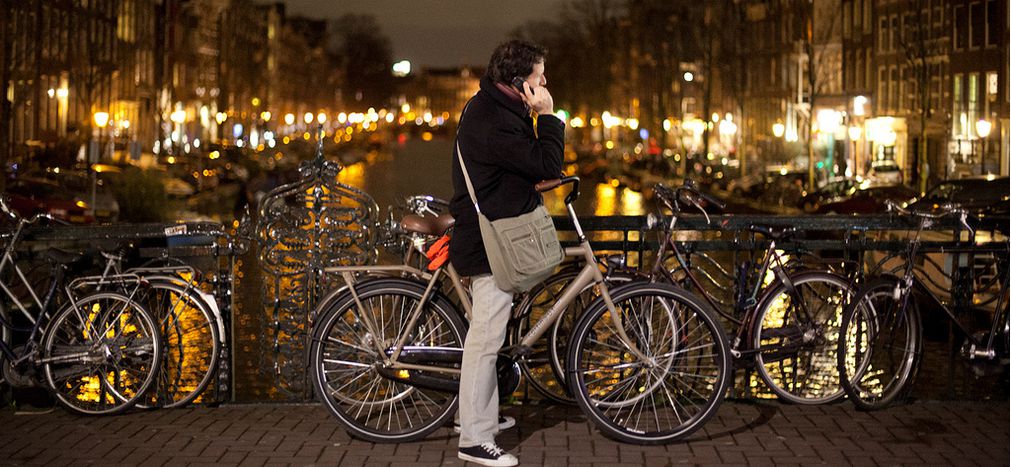
Dutch Ukraine referendum: What's at stake for EU treaty?
Published on
Today, on the 6th of April 2016, Dutch voters will go to the polls to vote on whether or not their government should ratify the EU-Ukraine Association Agreement. What’s this referendum all about? What are the main arguments for and against the agreement? And what's likely to happen when the votes have all been cast?
Europhiles throughout the European Union will be watching the referendum with bated breath; bearing in mind the last time the Dutch population was asked to voice their opinion on an EU-related topic. On Wednesday the 14th of June 2005, a 61.5% majority voted "no" in a referendum concerning Dutch ratification of the European Constitution.
Even though today's referendum will not be binding, the government will still need to respond to the outcome. The treaty demands unanimous ratification and the Netherlands is the only EU member state that still needs to sign the agreement. A Dutch "no" could mean the abortion of the treaty.
GeenPeil and the referendum
On the 7th of July 2015, the Dutch senate agreed to ratify the EU-Ukraine Association Agreement. However, a new law on consultative referenda, which only came into force on the 1st of July 2015, made it possible to force the government to recall political decisions in cases supported by more than 300,000 signatories.
GeenPeil (No Poll) – a joint action group, led by partisan online magazine GeenStijl – collected 427,939 requests to recall the decision within six weeks. Thus a referendum was called, which GeenPeil framed as an agenda setting victory for democracy. Regardless of the outcome of today's vote, the government could still decide to ratify the treaty, but the outcome will nevertheless send a clear signal.
Or, that is to say, it will do if enough people show up. The referendum has a 30% electoral threshold, and currently polls aren’t entirely in agreement on whether or not this will be met. This uncertainty has sparked commentators across the entire political spectrum to give contradictory voting advice in almost every major Dutch newspaper.
But what is this referendum actually all about?
The EU-Ukraine Association Agreement is not about Ukrainian EU membership, but mostly about free trade between the European Union and Ukraine, covering among others issues the environment, the quality of products and food safety.
The agreement also includes clauses on human rights and democracy. According to de Volkskrant, the European Union has similar agreements with countries as Serbia and Montenegro.
The reason GeenPeil demanded the referendum doesn’t appear to be so linked to the content of the agreement with respect to the free trade or human rights. In a controversial interview with de Volkskrant, Bart Nijman, one of the initiators of the referendum, said last week that he wasn't so concerned with the Ukraine association agreement itself. GeenPeil has consistently framed the referendum as a victory for democracy and a reminder to perceived political elites to take public opinion into account when making decisions.
Voting advice varies according to this dichotomy between the content of the agreement and the symbolic value of the referendum. Opponents of referenda – including some leading Dutch political commentators and intellectuals – advise voters to abstain from voting in order that the referendum doesn’t meet the 30% electoral threshold, rendering it illegitimate.
Some supporters of the agreement take the same approach, advising for "strategic voting", as the "no" camp is currently leading in the polls. Other voices, most prominently Dutch Minister for Foreign Affairs Bert Koenders, state that there is no such thing as strategic voting, and that one should only vote based on conviction.
The current government has been campaigning in favour of the agreement, but political commentators have stated that such campaigns started too late and were too mild for the government to show real commitment.
Populist and Eurosceptic parties, such as the right-wing Freedom Party (PVV) and the left-wing Socialist Party (SP), oppose the agreement. Their main arguments include a general dislike for the European Union and a fear of provoking Russia through implementing trade deals with Ukraine.
Implications
If the referendum reaches its threshold, the question is what implications this would lead to. A "yes", although unlikely when one looks at the polls, would probably mean a swift Dutch ratification of the agreement.
This would be in the line with national discontent towards Russia in the wake of the deaths of 193 Dutch citizens in the 2013 crash of flight MH17, which was potentially caused by pro-Russian rebels in the Donbas region of Ukraine.
A "no" vote however, would require the government to reconsider its ratification of the agreement and as such potentially undermine the future of the treaty as a whole.
---



